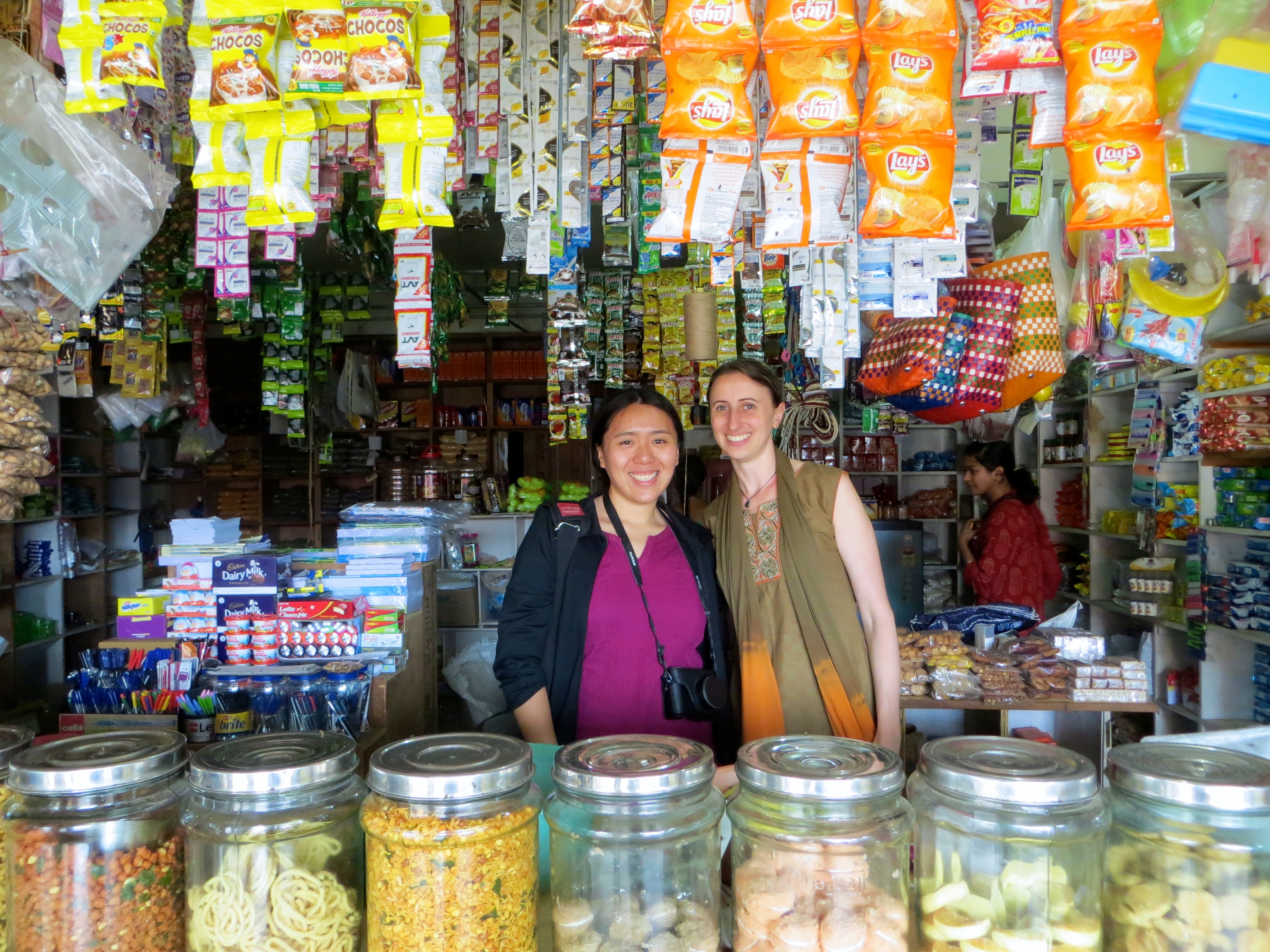Confronting the Last Mile Problem in the Developing World
-
-
Slice of MIT
Filed Under
Recommended

Caption: Essmart co-founders Diana Jue Rajasingh ’09, MCP ’12 and Jackie Stenson
Thousands of products aimed at fixing the problems of the developing world are designed at companies and schools like to MIT. Are they working? Are they being purchased? Are they reaching the intended user? After Diana Jue Rajasingh ’09, MCP ’12 traveled to India and China as an undergrad, she saw the discrepancy firsthand.
“Even though we were making these really great technologies for the people living in communities that were disconnected from cities or mainstream retail, they didn’t have any access to the products. There was so much focus on making the product and not enough focus on getting the product to people.”
After her first trip to India, she decided to return with a plan to address this problem. As a graduate student at MIT, Rajasingh traveled to India two more times to conduct research through MIT International Science and Technology Initiatives (MISTI) and her thesis focused on the gap between making technologies and getting them to Indian villages. A tip from her thesis reader, Media Lab lecturer Joost Bonsen, connected her to a Harvard student that was cross-registered in one of his classes, Jackie Stenson who shared her passion and they came up with the idea for their company over lunch at Mass. Avenue’s Flour Bakery.

Essmart, a distribution company that brings life-improving technologies to people in India, was founded by Rajasingh and Stenson in August 2012 with one distribution center in Pollachi and it has since expanded to six throughout the state of Tamil Nadu.
“We started with a pilot during IAP before I graduated,” says Rajasingh. “We went to Pollachi, a small town in south India, where we established our first office. We interviewed 200 retail stores about selling products and were able to test the market by giving stores sample products to sell.”
Since then, they have developed relationships with more than 1,300 stores across six different regions in Tamil Nadu. Many of the shops focus on fast-moving consumer products and goods like shampoo, Coca Cola, and cheap toys. Most have never heard of the 100 products available in the Essmart catalog.
And for many, these new products are life changing. “For me, recognizing the amount of impact I can have on one person’s life through bringing them a new product is the most rewarding,” says Rajasingh. “Like seeing that a solar lantern can help a family see at night because they’re not connected to the grid or helping a man work more hours to earn more money for his family.”
Rajasingh says they are constantly searching for useful and relevant products and they rely on feedback from shop owners. “We try to offer a balance of what we think are innovative and socially impactful products and also what people will actually buy and what they need,” says Rajasingh. “Sometimes there is a disconnect between what people are making and what people actually need. A cookstove is a product that is really big in the development sphere, there’s an entire Global Alliance for Clean Cookstoves, but they are something that require a lot of behavioral change and effort to market in these villages so they aren’t often purchased. We keep the product in the catalog because it has a lot of social impact but it’s not the only product.”
The company has addressed one frequent problem—poor-quality, easily-broken goods. “We built our reputation on quality products and after-sales service,” says Rajasingh. The Essmart guarantee means that the company will contact the manufacturer or facilitate fixing or replacing the items, a huge benefit for customers living in remote villages.
Essmart’s immediate goal is to expand the business into the state of Karnataka and they hope to reach all of India and other countries with similar distribution hurdles. “Our goal is to be that one-stop-shop for people making products. We want to make it easier for people doing all these development efforts to really make an impact.”







